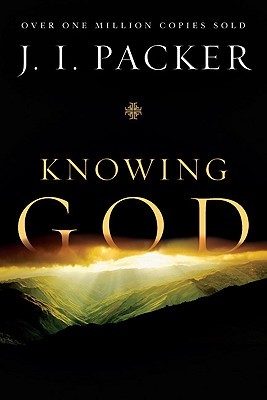Introduction
Knowing God is a Christian Classic written by J.I. Packer in 1973. The Intervarsity Press printed the second edition in 1993. Although J I Packer has authored dozens of books, none of his works is as popular as Knowing God (and that says a lot about the book rather than the others). The current edition has twenty-two chapters. Famous people like R C Sproul, Chuck Swindoll, Billy Graham, John Stott, and Joni Eareckson Tada have endorsed the current edition of the book.
Who is J.I. Packer?
Packer was born on July 22, 1926. He is an English-born Canadian who has exerted an incredible influence on the evangelical world in Great Britain and North America. Packer became Professor of Systematic and Historical Theology at Regent College in 1979. He’s the first Sangwoo Youtong Chee Professor of Theology at Regent. He also became the board of Governors Professor of Theology in 1996.
J I Packer is an Anglican in the Calvinistic tradition. He has been an active member of the Anglican Church in North America. Packer served as the general editor of the English Standard Bible, and he’s a member of the editorial council of Christianity Today.

Summary of the Book
Knowing God is divided into three parts – Know the Lord, Behold Your God, and If God Be For Us.
In the first part, Parkers lays a foundation for our knowledge of the Lord, discussing how and why we should know the Lord. He makes a crucial distinction between mere intellectual knowledge of God -the knowledge that puffs up – and the knowledge of God that gets to the soul. He emphasized the importance of meditation upon the truth of who God is, the kind of meditation that results in prayer and praise. The people who know their God will do exploits. Parker insists that true knowledge of God will be evident in the life of those who thus know him.
Those who know God have great energy for him; they have great thoughts of him; they show great boldness for him, and have great contentment in him. Knowing God is a matter of personal dealing, personal involvement, and grace. However, what matters ultimately is not that we know God but that he knows us. True knowledge of God comes to us in Christ, God incarnate.
In the second part, Packer examined some of God’s attributes – unchangeableness of God, the majesty of God, the wisdom of God, the truthfulness of God, the love of God, the grace of God, the justice of God, the wrath of God, and the jealousy of God. He examines each of these elements with the skill of a theologian and a pastoral heart.
In the third part, Packer gets to the very heart of the gospel that the glorious God that exists has adopted us as sons in Christ. We who are enemies of God have been brought near by the blood of Christ so that God is now for us. Instead of God’s wrath for our sin, Christ reconciles us to God and makes us partakers of his glory. God has now become our guide, leading and directing us through our journey on this earth. As part of his leading, he uses our inward trials as a means of grace to conform us to Christ. God is now for us, and if God is for us, no one can be against us. God is adequate for us. He is our sufficiency. In him, we are complete. The one who gave his precious Son for us will provide us with all things with him.
What I like about the book
There are many gems in this book. However, let me just point out a few reasons why I so much like this book.
- The theological structure
The movement from Part 1 to Part 3 is so amazing. Packer sets a great foundation by stating how we come to know God, what it is to know God, the results of knowing God, and the importance of being known by God. It was after setting the foundation that he expounded the attributes of God in scriptures. However, he didn’t leave it there; he ended with Part 3, where he explains the gospel and invites us to trust Christ. Packer did not just tell us who God is and leave us there with high theology. He brings us to Christ, God in human flesh, through whom and in whom we can call this God Abba.
- The attributes of God
The second part of this book is a masterful explication of the attributes of God. The book is so good that it is hard to say which part is the best. However, Part 2, where Parker expounded the attributes of God, had the greatest impact on my life at the time. The exposition is thorough, crisp, bible saturated and filled with practical applications. Packer calls us to know the only God who exists – the God of the bible. He weans us from our idols- the gods we have manufactured in our minds, and he calls us like Sproul to behold our God.
- Gospel-centeredness
Parker did not wait until Part 3 to get to the gospel. Everywhere you turn, the book is filled with the gospel. Chapter 18, the heart of the gospel, might be one of the best chapter-length resources you have read about the gospel. Such is the depth and profundity of Parker’s book.
- Christ-centeredness
If it is the biblical gospel, you can’t have the gospel without Christ. Jesus Christ is the gospel. Right from Part 1, in the chapter, God-incarnate, Parker focused our minds and attention on Christ, God incarnate. Even in his treatment of the attributes of God, he could not do it without fixing our minds on Christ. Christ is the center point. It is through him that we come to know who God is.
- Beyond Intellectual Knowledge
This is not a compendium of academic essays on the attributes of God. Parker’s concern is to help us come to a better grasp of God and have fellowship with him. Very early in the book, he made the crucial distinction between knowing about God and knowing God. Packer is not just going for the intellect; he is going for repentance and faith in Jesus Christ.
- High regard for Scriptures
Packer does not try to hide what the scriptures say about God. He will not bolster our idolatry. His only goal is to explain the scriptures and what they say about God. Period.

Why you should read the book
- You will know who God is: Not the “God” we have manufactured in our modern world but the true God of the bible, the one and only God who exists. If you read this book, you will have a higher, more biblical view of the biblical God.
- You will have great longing for God: You will not just know God, you will long for him. No regenerate soul can read about the attributes of God (faithfully expounded) without a greater longing for him.
- You will grow in your love for God: This glorious God (in all of his attributes) is the one who came down to earth to save us. He so loved the world that he gave us his Son. This gospel-centered understanding of God will grow your love for him.
- You will understand the gospel: Knowing God will give you a better understanding of the biblical gospel and a deeper appreciation of the God who designed this redemption plan.
- You will see the beauty and glory of Christ: This book will help you see the beauty and glory of Christ in display. The Christ-centeredness is everywhere.
- You will grow confident in God: The last two chapters of this book will help build your confidence in God. It will help you to see God’s workings in your trials and help you trust him in those dark moments. It will also deepen your trust in God’s provision and promises anchored in Romans 8:32, “Indeed, he who did not spare his own Son, but gave him up for us all- how will he not also, along with him, freely give us all things?
Helpful Links
- Amazon Page: https://www.amazon.com/Knowing-God-J-I-Packer/dp/083081650X
- Scribd: https://www.scribd.com/book/368692777/Knowing-God
- PDF: https://www.pdfdrive.com/knowing-god-e50726546.html
- Audio Book: https://christianaudio.com/knowing-god-j-i-packer-audiobook-download
- Quotes: https://www.goodreads.com/work/quotes/276686-knowing-god


